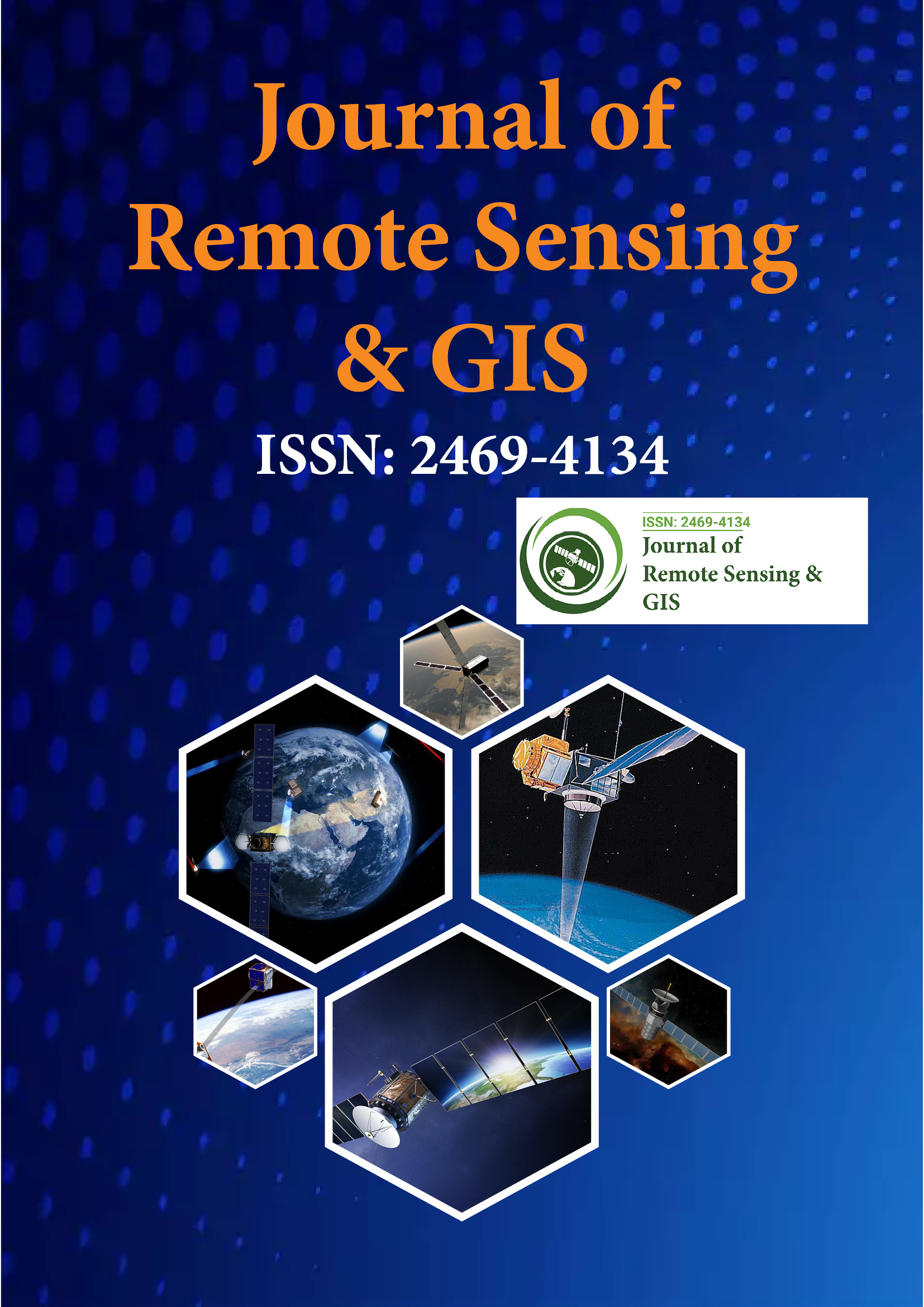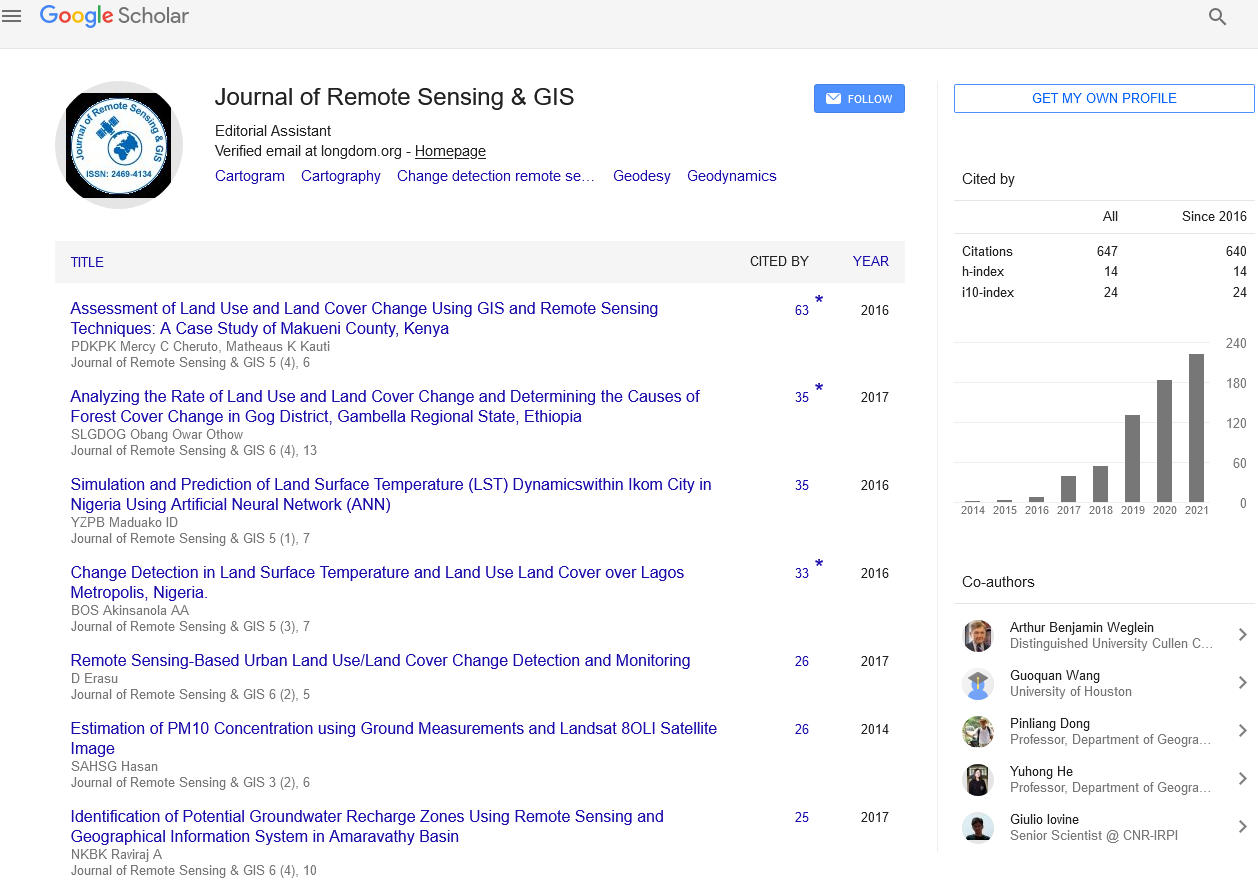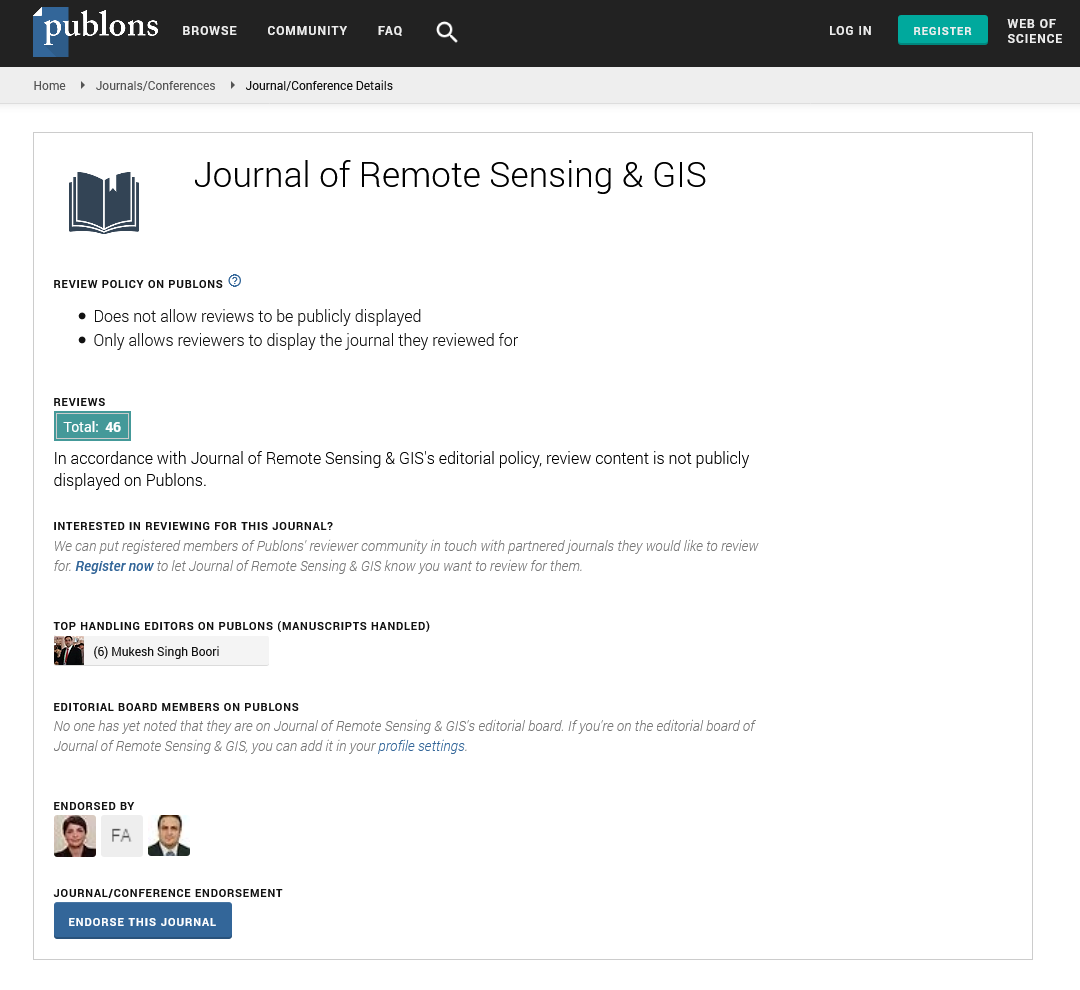Indexed In
- Open J Gate
- RefSeek
- Hamdard University
- EBSCO A-Z
- OCLC- WorldCat
- Publons
- International Scientific Indexing
- Euro Pub
- Google Scholar
Useful Links
Share This Page
Journal Flyer

Open Access Journals
- Agri and Aquaculture
- Biochemistry
- Bioinformatics & Systems Biology
- Business & Management
- Chemistry
- Clinical Sciences
- Engineering
- Food & Nutrition
- General Science
- Genetics & Molecular Biology
- Immunology & Microbiology
- Medical Sciences
- Neuroscience & Psychology
- Nursing & Health Care
- Pharmaceutical Sciences
Abstract
Change Detection in Land Surface Temperature and Land Use Land Cover over Lagos Metropolis, Nigeria.
With more than 78% of Nigerians living in cities, urbanization has had an important impact on climatic variations. Lagos Metropolis is located in a region experiencing rapid urbanization, which has produced a remarkable Urban Heat Island (UHI) effect. This effect influences the climate and socio-economic development on a regional scale. In this study, the Land Surface Temperature (LST) and Land Use Land Cover of 1984, 2001 and 2013 were analyzed for the spatial distribution of changes in temperature and land cover using Landsat images. A quantitative approach was used to explore the relationships among land surface temperature, land cover areas and Normalized Difference Vegetation Index (NDVI). Results showed that the vegetal cover has decreased rapidly over the 30 years’ period from 70.043% to 10.127%; and this changes has contributed to the variations in the microclimate and affected the UHI intensity. Furthermore, the urban and bare areas correlated positively with high land surface temperatures (r>0.8) while water body and vegetated areas correlated positively with low LST values.


